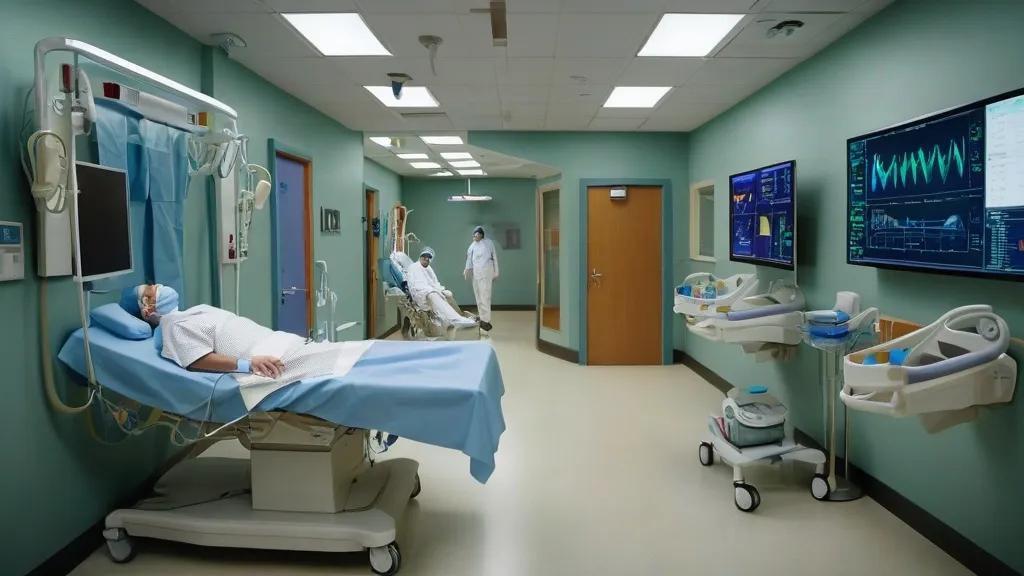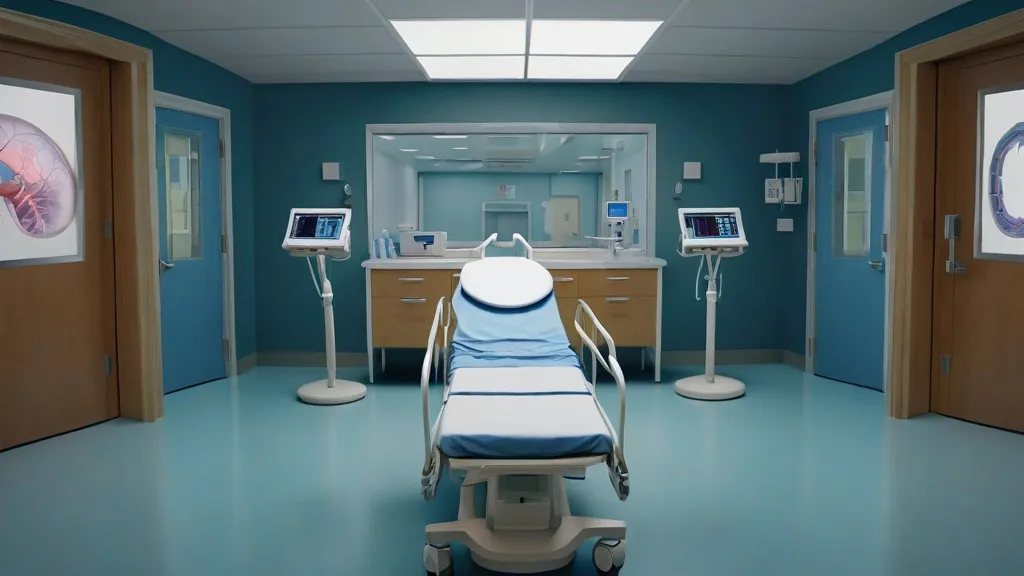As someone who has coached patients, sat in on 200+ pre-op visits, and done my own knee rehab twice, I know that feeling when knee surgery is tomorrow. It’s a weird mix of pre-op nerves, anesthesia jitters, and way-too-much Googling about ACL reconstruction, meniscus tears, and knee replacement recovery. I’ll give it to you straight, fast, and friendly.
What that feeling really is (and what I do about it)

In my experience, it’s three things at once: fear of the unknown, fear of pain, and the logistics brain going nuts. You’re thinking about crutches, fasting rules, and whether your overnight bag has socks. Meanwhile, your knee still clicks like a door hinge in an old house.
When my brain spins, I map it like a level in a game. It helps to visualize the route from “pre-op check-in” to “post-op snack.” If you’re a visual thinker like me, imagine the OR as the boss stage and the recovery room as a chill-down level—I’ve always found a level map style helpful, the same way visual game design breaks down scenes into tiny tasks.
- Symptom: stomach flutters. Fix: write stuff down, tiny lists, check them off.
- Symptom: doom scrolling. Fix: set a timer. Ten minutes max. Then stop.
- Symptom: “What if the anesthesia fails?” Fix: ask the anesthesiologist about the plan A and plan B. There is always a plan B.
- Symptom: “Will I wake up?” Yes. You will. And you’ll be a bit puffy and weird. That’s normal.
The day-before checklist I actually use
Look, I’ve watched patients pack like they’re moving houses. Overkill. Here’s the lean version I trust. It hits preoperative care basics without drama.
- Confirm fasting rules (NPO). Usually nothing after midnight, water allowed up to a certain time. Follow your team’s exact instructions.
- Shower as directed (sometimes with special soap). Clean, dry skin helps.
- Set up your home “landing pad”: pillows, ice packs, charger cable, water bottle.
- Med list printed. Allergies listed. ID and insurance card at the door.
- Ride arranged. Yes, you need a driver. No, Uber after anesthesia is not the move.
I also remind myself that culture matters—how we talk about pain, recovery, and toughness. That shared language can help you keep perspective, almost like how gaming culture frames grinding and boss fights. This is a grind. But a short one.
If you want a clean, plain-English prep guide on food, meds, and timing, the Harvard folks wrote a solid piece I send to family all the time: preparing for surgery. It’s not flashy. It’s clear.
What I pack in my small bag
Keep it simple. Hospitals have blankets. You bring comfort and chargers.
- Phone, long cable, and a notepad. I write questions. The notepad keeps me honest.
- Loose shorts or sweats that fit over a big knee wrap.
- Slip-on shoes. No laces after anesthesia. You’ll swear at them.
- Chapstick and a tiny lotion. Air gets dry. You’ll feel it.
- List of meds. Real doses. Not “I think it’s the blue one.”
I call this kit my “indie build.” Light, custom, no bloatware. If you’re into small, purposeful setups, think of it like the clean bones of an indie battles project—only what ships matters.
Talking to anesthesia without sounding like a droid
I ask three plain questions. Works every time.
- What kind of anesthesia will I get? General, spinal, plus a nerve block?
- How do you prevent nausea for people like me?
- What’s the pain plan the first 24 hours?
If you want a simple overview of the knee surgery side of it, the NHS has a good, practical page: knee replacement basics. Even if you’re doing an ACL repair, the pre-op vibe is similar.
Food, water, coffee, the stuff no one is clear about
I’ve always found the food rules to be the most stressful part. Here’s my simple rule: do exactly what your surgeon’s office says. Not what a forum says. Not what your cousin said after his meniscus tear.
- Night before: easy dinner, no heavy grease, hydrate well.
- Morning: follow NPO (nothing by mouth) rules. Sometimes clear liquids up to a time. Set alarms.
- No alcohol. Yes, even if you think “just one.” Booze messes with anesthesia and recovery.
This is where my gamer brain sneaks in. You’re charging your health bar, not draining it. Think simple fuel before a boss fight. Which reminds me of how clean choices matter in classic arcade games—one mistake and you pay for it.
Will I sleep the night before? Eh. Here’s how I make it less awful.
What I think is this: don’t chase perfect sleep. Chase calm.
- Put your stuff by the door by dinner. Reduce night brain loops.
- Warm shower. Soft music. No surgery videos after 7 pm. Please.
- Small snack if allowed. Half a banana. Nothing spicy. Keep it boring.
- Breathing trick: exhale longer than you inhale. Easy math for a busy brain.
And if your knee keeps barking, prop it. Small pillow under the heel, not behind the knee. Learned that the hard way after my first scope.
Real expectations: pain, movement, timeline

Honesty time. The first 48 hours can feel loud in your body. Swelling. Heat. The brain thinks, “Did I make it worse?” You didn’t. Your knee is just angry because strangers touched it in a bright room with cold air and big gloves.
- Day 0: you’ll be groggy, maybe numb if you got a block. Toe wiggles are a big win.
- Day 1–3: swelling party. Ice. Elevate. Meds as prescribed. Short walks. Bathroom laps count.
- Day 4–7: PT starts. You’ll hear “extension, extension,” like a chant. They mean straighten the knee.
- Week 2–4: more control, less wobble. Stairs still weird. Keep working.
- Month 3+: the knee starts acting like it pays rent. Still needs respect.
I gamify progress to stay sane. Tiny quests. Hit 0–90 degrees flexion? Ding. Level up. It’s why I have a soft spot for old-school pixel games—simple goals, tight feedback loops.
Mini myths I hear the night before surgery
- “Pain is a sign something’s wrong.” Not always. Early pain is expected. Swelling is normal. Talk to your team about what’s “too much.”
- “If I take pain meds, I’ll get hooked.” Use them as directed, short term, with a step-down plan. I like alternating with ice and non-opioid meds when allowed.
- “I should tough it out.” No. Pain control lets you move. Movement prevents clots and speeds healing.
- “PT means Pain and Torture.” Funny, but not true. Good PT is precision discomfort, not suffering.
My go-to “feelings vs fixes” cheatsheet
- Feeling: jittery hands. Fix: write three questions for the surgeon. That’s it. Three.
- Feeling: can’t stop googling. Fix: set a 10-minute research window, then switch to a show you’ve already watched.
- Feeling: control freak mode. Fix: prep your home nest—pillows, ice, meds, water. Then stop. Done is done.
- Feeling: “I’m not ready.” Fix: say out loud, “This is the step that gets me back.” Corny? Maybe. It works.
A quick word on the actual operating room
I get asked about the OR vibe a lot. Truth: it’s both serious and surprisingly human. Someone will crack a dad joke. Someone else will tape a line straight like it’s art. They’ll confirm your side a few times (good!) and ask your name again (also good!).
If your brain wants a deeper dive into the parts and pieces, knee replacement basics can help frame what happens, even if your procedure is smaller. You don’t need to memorize it. Just enough to calm the mystery.
Little things that matter more than you think
- Compression socks: not stylish, but they fight swelling and clots. Wear them.
- Clear path at home: rugs up, cords out of walkways. Crutches + cords = slapstick.
- Bathroom plan: a chair nearby, a grab bar if you have one. Safety beats pride.
- Refill ice often: consistent icing beats heroic icing.
How I talk to myself the night before
I say: this is not forever, it’s a door. I chose it. Tomorrow is logistics. The day after is the first step back to stairs that don’t feel like a puzzle. And yes, I still get that wave—that feeling when knee surgery is tomorrow—but now it passes faster. Practice helps. So does a dumb sitcom.
If you want a super short script
- Pack the bag. Set the alarms. Confirm the ride.
- Soft dinner. Shower. Chill show. Early lights out.
- Morning: follow the rules. Ask your three questions. Breathe out longer than you breathe in.
- After: meds on schedule, ice, move a little, nap a little. Repeat.
We make big choices feel bigger by decorating them with fear. Strip the decor. Keep the plan. And if your mind wanders into catastrophe, bring it back with one line: I did the prep; now I let the pros do their job. Funny enough, that line quiets the noise faster than any hack. It’s the opposite of a hack. It’s trust. Anyway, I’ll probably go reorganize my snacks again, because apparently that’s my ritual for that feeling when knee surgery is tomorrow…
FAQs
Is it normal to feel freaked out the night before?
Yes. Totally normal. Write down your top three worries and bring them. Ask your team. You won’t be the first or the weirdest.
What should I eat the night before?
Simple food. Not heavy or spicy. Hydrate well unless told otherwise. Follow your surgeon’s exact instructions.
Will I wake up during the surgery?
No. Modern anesthesia is very safe. Ask about the plan and backup plan. You’ll likely remember nothing until recovery.
How bad will it hurt after?
It can hurt, especially the first two days. Good pain control plus ice and movement make a real difference. Tell your team if it feels out of control.
When can I walk again?
Often the same day or the next day, with help. It depends on the procedure. Your team will guide you step by step.
Henry Wright: Celebrating the artistry of gaming. I cover Pixel Games, Indie Battles, Arcade Classics, Gaming Culture, and Visual Design. Let’s explore the pixels together!


What other fun facts can you share about the history of disco music?